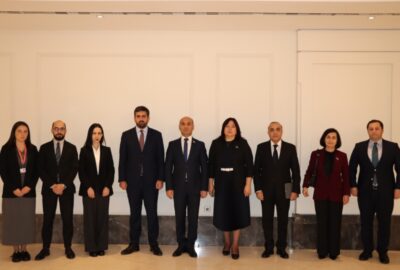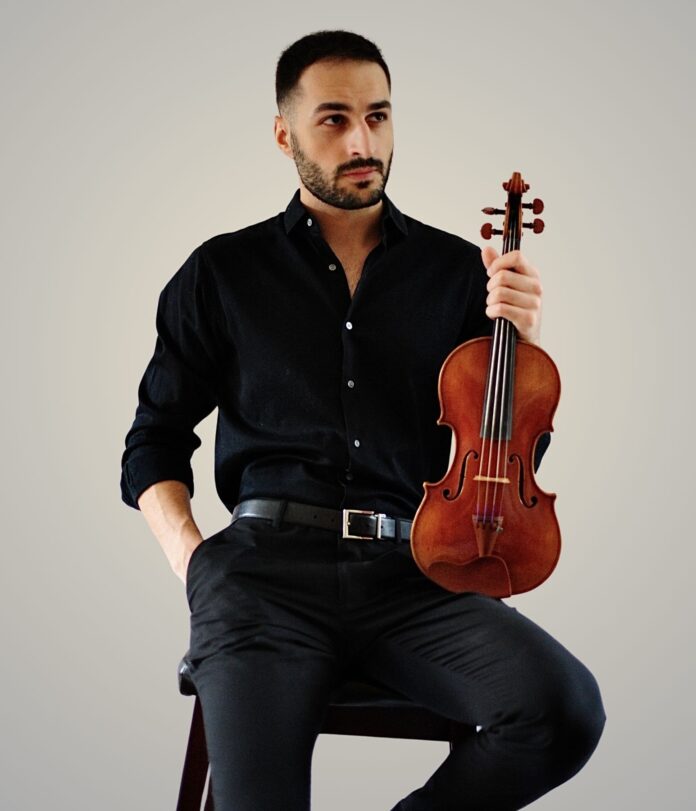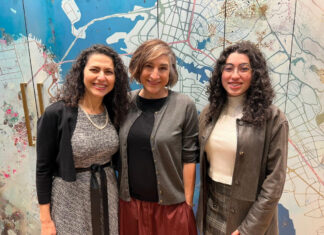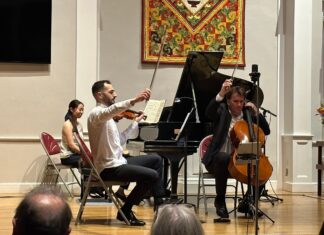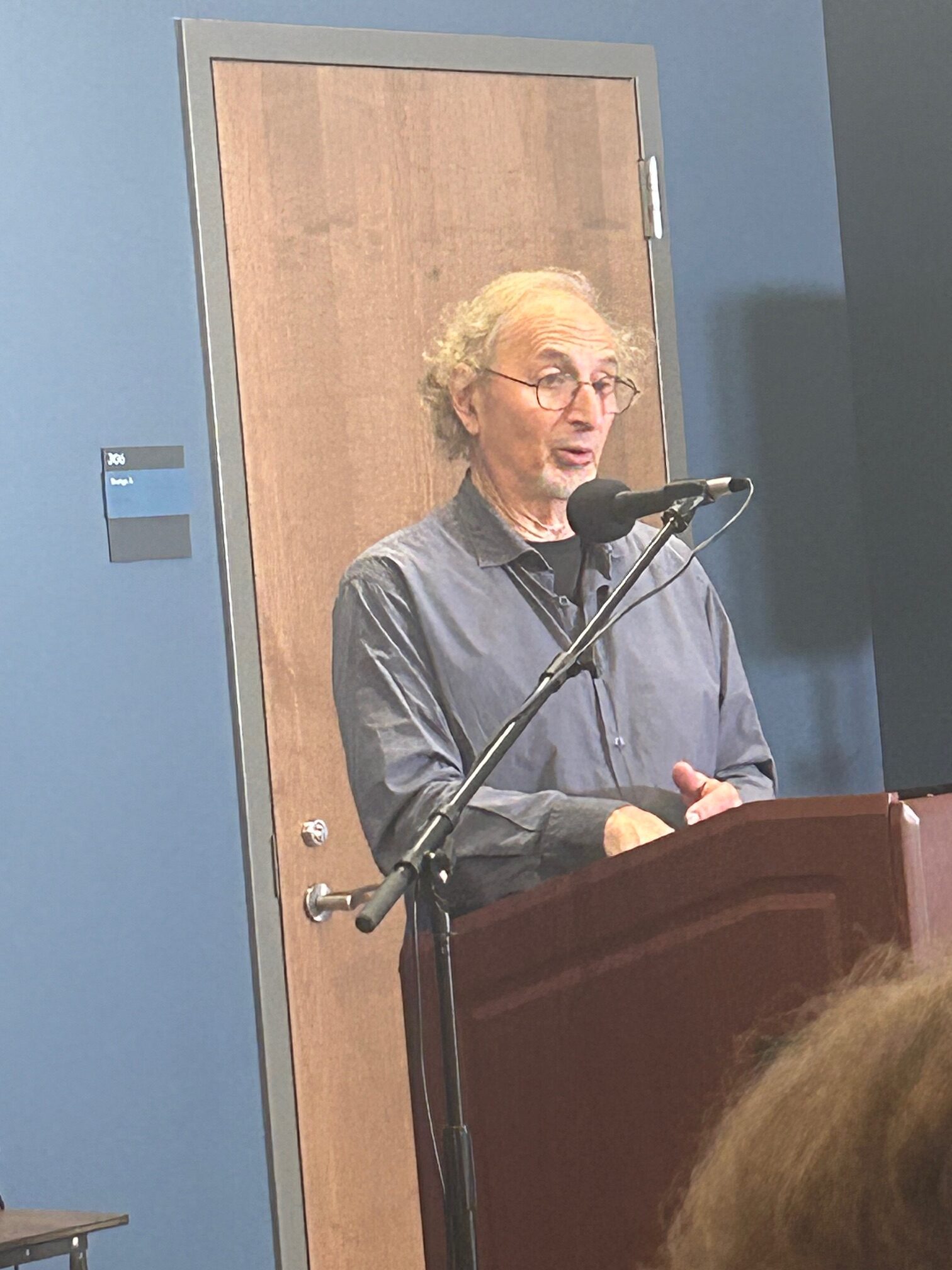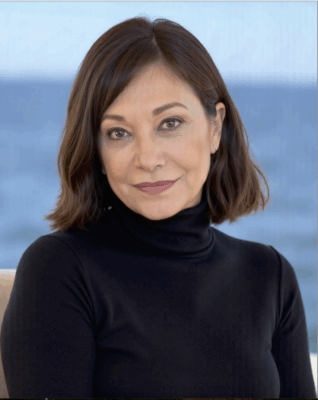BELMONT, Mass. — At the young age of 25, violinist Haig Hovsepian has a lot of experience under his belt. He has won numerous awards and performed in many hallowed sites, including Symphony Hall and the Massachusetts State House.
This fall he is launching the Massachusetts Chamber Music Artists (MCMA), a curated concert series.
“It’s a flexible collective of professional musicians who come together to perform chamber music on a concert-by-concert basis. Rather than having permanent ‘members’ like an orchestra would, MCMA builds its programs by curating ensembles specifically tailored to the repertoire and artistic goals of each concert. This structure allows us to remain flexible and explore a wide range of works while collaborating with a diverse group of artists who share a passion for meaningful and engaging performance,” Hovsepian explained recently.
MCMA will have its inaugural concert on November 1, at the First Parish in Bedford. The concert will feature Frank Bridge’s Phantasy Piano Quartet, as well as songs from Komitas, and finally Felix Mendelssohn’s Piano Trio No. 1. The artists performing, in addition to Hovsepian, will be Michael Fisher on violin, Yeh-Chun Lin on viola, Edward Arron on cello and Dina Vainshtein on piano.
He explained further, “MCMA is a chamber music initiative that is aimed at serving both Armenian and non-Armenian realms of repertoire and artists. At its core, it’s a platform where exceptional chamber musicians can collaborate and present dynamic programs that span a broad and diverse repertoire. All the while, a key part of our identity is to highlight Armenian music — of well-known and lesser-known composers — and to bring our national repertoire into conversation with Western classical works. This combination of national and international reflects both my personal artistic vision and my family legacy.”
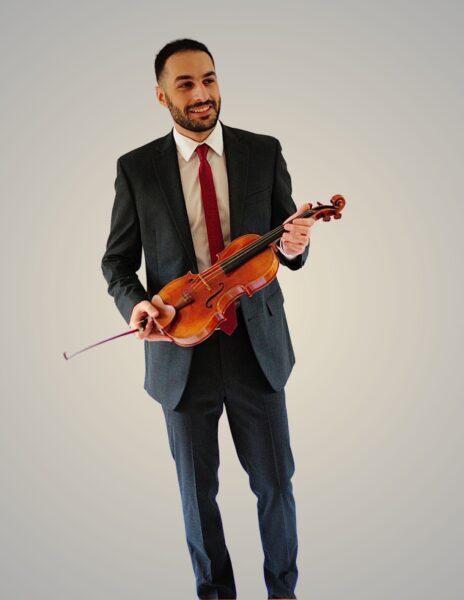
As for the MCMA’s purpose in “curating programs,” Hovsepian explained, “Curating programs implies thoughtfully designing concert experiences — from choosing the repertoire and deciding how pieces relate to each other, to selecting the right musicians for each work. It’s about shaping a narrative or emotional journey for the audience, not just assembling a list of pieces. For MCMA, my plan is to design the programs and to perform in them, with a rotating ensemble of musicians selected based on their connection to the repertoire and artistic chemistry. I’m also very intentional about how Armenian music can be presented in conversation with the Western canon and other underrepresented voices. Collaboration with other chamber groups — whether it is sharing ideas, helping shape new program concepts, or contributing artistic talent or direction — is also one of the potential aspects of our goals of building a larger culture of meaningful music-making.”
